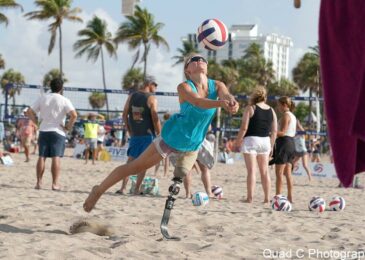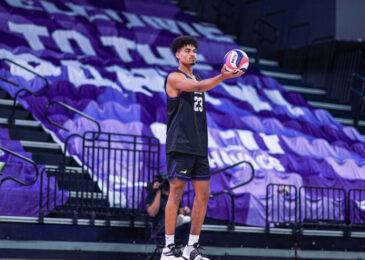Are you tired of the same old drills in your sports training? Have you ever wondered if there’s a better way to help your athletes grow and develop? In this article, we’ll explore why it might be time to rethink the traditional approach of drills and instead focus on creating meaningful learning opportunities for your players. We’ll delve into the science of motor skill learning and discuss how coaches can optimize their training sessions to enhance player performance. Join us on this journey to discover a new perspective on sports training that can take your coaching to the next level.
Bạn đang xem: Why You Should Rethink Drills in Sports Training
The Limitations of Traditional Drills
In the world of sports coaching, drills have long been a staple for skill development. However, many coaches fail to realize that traditional drills often fall short when it comes to teaching the complex dynamics of a game. While drills may appear effective during practice, athletes often struggle to transfer their skills to actual gameplay.
Drills tend to focus on technique rather than cultivating the volleyball skills that are essential for successful performance. In addition, drills are often run by the coach, with little player involvement. This approach limits the athletes’ ability to develop their own game intelligence and decision-making abilities.
Embracing Learning Opportunities
Instead of relying solely on drills, coaches should shift their focus towards creating learning opportunities for their players. The key is to simulate game situations that challenge athletes to think on their feet and make quick decisions. By doing so, coaches can foster volleyball IQ and equip players with the skills they need to excel in real matches.
By designing practices that are more gamelike, coaches can tap into their athletes’ capacity to learn through experience. Players will gain a deeper understanding of the flow of the game and become more adept at reading and responding to different situations. In turn, this will lead to improved performance and better game outcomes.
The Science Behind Effective Training
To better understand the benefits of gamelike training, let’s explore some key principles of motor learning. Specificity, implicit vs. explicit learning, whole vs. part training, and random vs. blocked learning are all vital considerations in creating effective training sessions.
Xem thêm : U.S. Men’s Victory against Iran in Preliminary Round
Specificity emphasizes the importance of replicating game scenarios during practice. It’s not enough to focus solely on fundamental abilities like balance and quickness. Coaches should concentrate on developing fundamental skills that directly contribute to game success.
Implicit learning, where players acquire skills without conscious awareness, is often more effective than explicit learning. By creating challenges and allowing athletes to discover solutions themselves, coaches can cultivate a deep understanding of the game that transcends simple technique.
Whole training, as opposed to part training, encourages athletes to work on complete game actions rather than isolated movements. This approach promotes better transfer of skills to match situations.
Random learning, where drills are diverse and unpredictable, can enhance athletes’ ability to adapt and make split-second decisions. This chaotic environment closely mimics the unpredictability of actual gameplay.
Designing Effective Learning Environments
So, how can coaches create learning opportunities that optimize player development? One effective approach is to incorporate video review into training sessions. By using video delay software or apps, coaches can isolate specific aspects of the game and provide targeted feedback. This method allows athletes to see themselves in action and gain valuable insights into their performance.
Furthermore, coaches should prioritize player control during practice. By stepping back and observing, coaches can identify areas for improvement and tailor their instruction to specific players or small groups. This player-centered approach fosters a deeper level of engagement and empowers athletes to take ownership of their development.
Frequently Asked Questions
1. Are drills completely useless in sports training?
Xem thêm : Time to Improve Your Serving Skills
Drills can still have a place in training, especially when they closely resemble game situations and facilitate meaningful skill development. However, coaches should be mindful of relying too heavily on drills and instead focus on creating diverse and challenging learning opportunities.
2. How can I convince my coaching staff to adopt a more gamelike training approach?
Transitioning to a gamelike training model may require some convincing, especially if the coaching staff is resistant to change. Emphasize the scientific principles behind this approach and present evidence of its effectiveness in improving player performance. Encourage open-mindedness and a willingness to experiment with new methods.
3. What if my players resist the change and prefer traditional drills?
Change can be challenging, but it’s essential to help athletes understand the benefits of a gamelike training approach. Communicate the long-term advantages of developing game intelligence and decision-making skills. Encourage players to embrace the challenges and opportunities for growth that come with this new approach.
Conclusion
In this article, we’ve explored why it’s time to rethink traditional drills in sports training. By shifting our focus to creating learning opportunities, we empower athletes to develop their game intelligence and decision-making skills. By embracing gamelike training, coaches can optimize player performance and foster a deeper understanding of the sport. So, let’s leave behind the limitations of traditional drills and embark on a journey to unlock the full potential of our athletes.
Remember, for more information on optimizing sports training and improving performance, visit Alpinetgheep.
Nguồn: https://www.alpinetgheep.com
Danh mục: Volleyball




